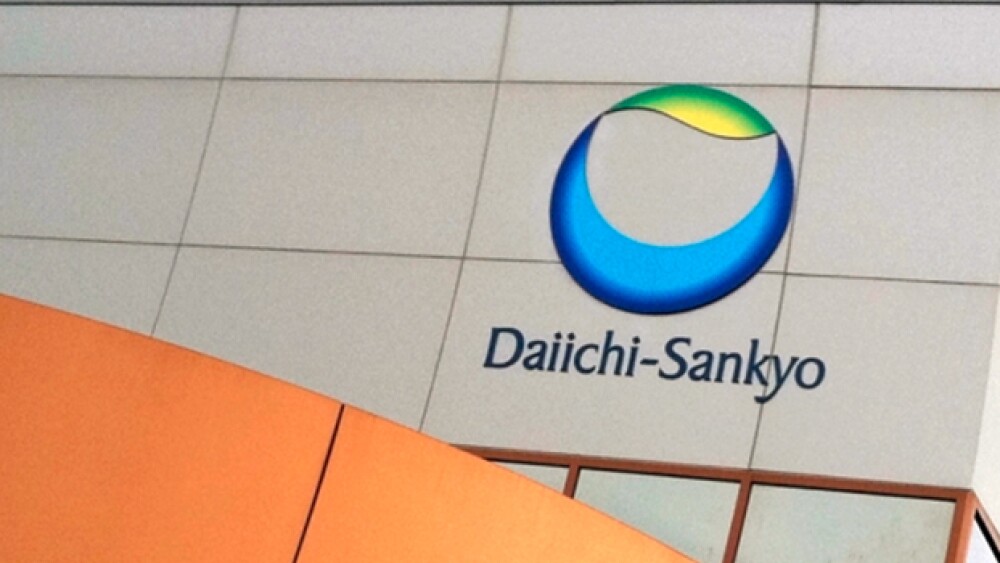The panel opposed approval of Daiichi Sankyo’s AML drug but supported approval for its TGCT treatment.
Daiichi Sankyo’s hope for a regulatory approval of its acute myeloid leukemia therapy quizartinib hit a snag after an advisory panel with the U.S. Food and Drug Administration (FDA) overwhelmingly voted against the medication due to safety concerns.
The Oncologic Drugs Advisory Committee voted 8-3 against approval of quizartinib, an oral selective type II FLT3 inhibitor, under development for the treatment of adults with relapsed/refractory AML who have an FLT3-ITD gene mutation. The committee members rejected the drug, saying that the efficacy benefit provided by quizartinib does not outweigh the safety risks for AML patients. Quizartinib is being reviewed by the FDA under Priority Review, however, the drug has already seen at least one delay. In April, the FDA extended the PDUFA data for quizartinib in order to provide time to review additional data submitted by Daiichi Sankyo in association with an FDA request. The Prescription Drug User Fee Act (PDUFA) action date is Aug. 25.
The Japanese company filed its New Drug Application with the FDA based on the results from the Phase III QuANTUM-R study that showed quizartinib prolongs overall survival as an oral, single agent compared to chemotherapy in patients with relapsed/refractory FLT3-ITD AML. Data showed that patients who received quizartinib had a 24 percent reduction in the risk of death compared to patients who received salvage chemotherapy. Additionally, median overall survival was 6.2 months for patients treated with quizartinib, compared to 4.7 months for patients treated with salvage chemotherapy. As a result of that study, the FDA granted quizartinib the Breakthrough Therapy Designation due to the limited advances made for the treatment of this subset of AML patients.
While the trial results showed the drug worked in treating this subset of patients, there were a number of adverse events associated, including thrombocytopenia, musculoskeletal pain, neutropenia, febrile neutropenia and hypokalemia. While there were no cardiac deaths associated, the trial showed that a small number of patients experienced a significant increase in their heart rates.
Antoine Yver, global head of Oncology Research and Development at Daiichi Sankyo, said the company is disappointed with the ruling from the advisory panel and promised to work closely with the regulatory agency as it completes its review.
Patients with relapsed/refractory FLT3-ITD AML are facing a very aggressive disease with poor prognosis, and we continue to believe that quizartinib could offer an important additional treatment option that specifically targets FLT3-ITD, a driver mutation in AML,” Yver said in a statement.
Despite the vote of no confidence in quizartinib from the advisory panel, the FDA is not bound by the recommendation of the committee. However, it is typical for the agency to side with its advisors.
While Daiichi Sankyo hit the road bump with quizartinib, its treatment for adult patients with symptomatic TGCT received overwhelming support from the same committee. ODAC members voted 12-3 in favor of pexidartinib.
“Today’s vote in favor of pexidartinib marks a significant step toward delivering the first approved systemic therapy for select Tenosynovial giant cell tumor (TGCT) patients whose disease is not amenable to improvement with surgery,” Yver said in a statement. “Some people living with TGCT experience debilitating symptoms and need innovative treatment options. We believe that pexidartinib has the potential to help address this need by offering carefully selected TGCT patients an important treatment advancement, and we look forward to working with the FDA as it completes its review of our application.”
The NDA for pexidartinib is under Priority Review. The PDUFA date is Aug. 3. The NDA submission is based on the results of the pivotal phase 3 ENLIVEN study of oral pexidartinib, the first placebo-controlled study of a systemic investigational therapy in patients with TGCT, a rare tumor that affects the synovium-lined joints, bursae and tendon sheaths, resulting in swelling, pain, stiffness and reduced mobility in the affected joint or limb.





